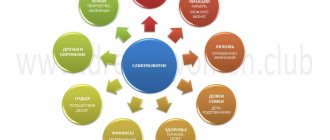Among the diversity of human life, the inner space of a person remains unknown to many. And this inner life is in many ways more important for a person than the external one, since the trauma inflicted on the psyche does not heal for decades, unlike the wounds of the body. This is well known to psychologists - people whose lives are devoted to studying the secrets of the soul. And, of course, the desire to understand another is precious.
Those who set out on the path of study themselves must go through a difficult path. What are the main difficulties of studying, why is it so difficult to master the science of psychology; where to start learning? Let's try to figure it out.
Methodology
When a person decides to study a science such as psychology, it is worth thoroughly becoming familiar with the methodology of science. And he spends a lot of time reading various publications.
But where to start studying psychology on your own? How to find a knowledge base that you can rely on in the future and deepen your science? Real science is impossible without basic and orderly concepts. First, the subject of science and methodology are studied. Methodology is the systematic analysis of the methods used in this science to obtain knowledge.
Chapter 1 Types of Temperament
Each person has a unique identity from the moment of birth. Any nurse working in a maternity hospital can confirm this: all newborns behave differently: one toddler sleeps twenty-two hours a day, the other, violating all the rules of behavior for “normal” babies, stays awake for a long time, interestedly and carefully examining those bending over him adults, the third does not allow them to forget about themselves for a second, emitting piercing screams... These differences, thanks to which already in the first days of life one cannot confuse Masha with Dasha, and Petya with Seryozha, are nothing more than a manifestation of temperament . The attitude of parents, upbringing, life experience will further influence how these quietly sniffling (or loudly screaming) bundles will grow up, but temperament will remain more or less unchanged “factory setting”.
…
The study of different types of temperament has a long history. The founder of this doctrine is the great ancient Greek physician and scientist Hippocrates. As this learned man believed, four types of fluid (juices) circulate in the human body: blood, yellow bile, black bile and mucus (phlegm). Each of them has its own special properties, and in each person these four “juices” are combined in the body in a certain proportion. This combination determines the characteristics of the body’s activity, as well as its susceptibility to certain diseases. And besides, the characteristics of human behavior also depend on how exactly the four liquids are combined and which one predominates.
The names of the four types identified by Hippocrates appeared, however, several centuries later, as did their detailed psychological descriptions. What Hippocrates called by the Greek word “krasis” (“mixing”), in Ancient Rome began to be called by the Latin word temperamentum (“proper relationship of parts, proportionality”).
The Roman physician Galen was the first to create a detailed classification of temperaments, which was based on the idea of mixing four liquids. However, in Galen’s classification there were as many as thirteen types (including four Hippocratic ones). As Galen believed, the predominance of yellow bile (lat. chole) in the body determines the choleric temperament, blood (sanguis) - sanguine, mucus (phlegma) - phlegmatic, and black bile (melanos chole) - meloncholic. Galen's actual psychological description of these four types was not detailed, but over time it expanded and became more and more detailed.
You are probably very familiar with these terms themselves - choleric, sanguine, phlegmatic and melancholic - and at least their approximate meaning. Before we dive into the four types in detail, try to identify which temperament is being described in each of the passages below:
…
Start with yourself. Why and for what
The beginning of studying human psychology is understanding personal motives. First of all, we need to understand why we take the first step to study human behavior: to be experts in the development of children and help them grow harmoniously, both for their own personal growth and to become professionals and be able to help strangers.
It is also important to decide in advance which side of science you will study thoroughly - theoretical or practical. After all, it's hard to find without knowing exactly what it is. Especially in the ocean of information.
Methods of psychological influence on people
Society is people in constant communication. They influence each other, consciously or unconsciously. Methods of influencing others have a number of options:
- Infection. This is the transfer of an emotional state between people. Panic and the cry of one person spoils the mood of everyone present. You can become “infected” with both negative and positive emotions.
- Suggestion. The motivation for a specific action is instilled through verbal or non-verbal speech. Each personality is characterized by varying degrees of suggestibility. Insecure people, including children under 13, are more suggestible than independent people.
- Belief. Action on the part of a person is caused by logical thinking. The higher the intelligence, the less prone to persuasion.
- Imitation. People often copy the manners of others (consciously, unconsciously). Frequent role models are successful, wealthy individuals.
Manipulation is another way of influence. The manipulator gets what he wants, the opponent is left with the illusion of an independently made decision.
Human psychology is an interesting science. Anyone can understand its basics. But not everyone is able to practically apply the acquired theoretical knowledge. A psychologist will help you understand the intricacies of this complex discipline.
IMPORTANT! Informational article! Before use, you should consult a specialist.
Psychology books. Which ones do a beginner need?
What books should you start studying psychology with? In order to learn the basics of any science, you need to start with the basics: the most basic categories, terms and concepts that can be found in any first-year textbook. Such textbooks are available in all city libraries. Although they are not very eloquently written and are full of definitions and tables, they are important to understand. It will also be easier. After reading this first book, you need to find the classics of psychology: C. Jung, C. Horney, A. Adler, E. Fromm and, of course, you need to familiarize yourself with the works of Freud.
A lighter and more interesting book by I. Yalom “When Nietzsche Wept.” Then you can search for a book by any author in the direction that is most interesting at the moment.
There are many authored books, it is important to find an author who is a professional and has been working in this field for at least 10 years. Thus, the experience that the author conveys to the reader is authoritative and you can rely on it in the future.
We must not forget that it is important for a psychologist to know the basics of philosophy and sociology. It is important to develop humanitarian thinking; science is not only theories and theses.
The narrative also contains a lot of useful information for the future psychologist. Classic writers clearly analyzed the nature of the inner world and the actions of their fictional characters. A particularly deep analysis can be found in the books of F. Dostoevsky.
Literature
Literature should be selected based on the topic of interest. If you are going to study the characteristics of children's behavior in order to better communicate with your own child, then you are unlikely to need a textbook on pathopsychology. What will definitely come in handy is a book on the basics of general psychology and a dictionary of psychological terms. These books will make all other information accessible and understandable.
You can choose the author at your discretion. At the moment there are many of them and there is a great chance to choose the one whose presentation style is closest to you. The only thing worth paying attention to is the author’s biography, the presence of practical experience, scientific works, well-deserved degree, etc.
Freud, who is considered a classic and inextricably associated with psychological science, is not for everyone. The writing style and terminology may be difficult for beginners to understand and requires knowledge of the concept of psychoanalysis. In addition, many of his theories have already been criticized and are not relevant at the moment.
Magazines and publications
In today's incredibly vast information space, finding an accessible and interesting psychological journal is not a problem. Many universities publish their own journals and are quite free to post free versions online. You just need to find a journal that you find informative and useful in your chosen field of study.
- Magazine Onlinepsychologies.ru.
- "Existential and humanistic psychology."
- "Russian psychological journal".
- Experimental Psychology".
- Journal of the Higher Attestation Commission "Bulletin of VlGU".
- Another.
The online magazine psychology.ru was created for a wide range of readers. If you want scientific publications written by qualified institutional staff, your best bet is to read official publications. For example: “Russian psychological journal”.
Courses on time management, or time management
“Time is your most valuable asset.” “The time we have is money we don’t have” – isn’t it time to learn how to manage your time better?
Time management - the best techniques
Description. The course lasts 1 month and 1 week, includes 20 lessons. Each lesson lasts 20-30 minutes. Teachers will tell you about the hundred most popular time management techniques that you can immediately begin to apply in your life.
You can apply the acquired knowledge everywhere: at home, in school, at work. If you are constantly nervous due to lack of time, “chronic” fatigue, constant delays, this material is definitely for you.
Among the techniques described, you will find the Descartes square, which helps to quickly make decisions under limited time, the Franklin pyramid for planning and goal setting, the GTD system for increasing personal effectiveness, and much more.
Authors: Dmitry Geraskin, Kirill Nogales, Evgeny Buyanov.
Cost: 1990 rub.
Start studying
Time management from Skillbox
Description. In just 1 month, you will learn how to manage time and use it as efficiently as possible to achieve your goals. You will learn how to correctly determine the amount of time to solve a certain task, how to plan your actions for the day, week, month and even year in order to achieve all the goals you want to achieve.
Separate lessons are devoted to the fight against laziness and procrastination. Experts will teach you to focus on one thing and not be distracted by anything, and do routine work as quickly as possible.
The total number of lessons is 18, they are combined into 4 thematic modules.
Authors: Matvey Matveev.
Cost: 12,000 rub. or 1,000 rubles per month in installments.
Start studying
The world of psychology. Main directions
In what directions is modern psychology developing? Where to start studying trends in the development of the main directions of this science? You can't achieve success right away, and you have to decide which direction a person will feel most confident in, what they are closest to learning and applying.
The classic indications are:
- cognitive direction;
- Gestalt psychology;
- associative psychology;
- humanistic;
- deep.
As well as new directions: psychodrama, coaching, transpersonal psychology and neurolinguistic programming.
Nonverbal communication as a basis
What is it impossible to imagine psychology without? Where to start learning? A beginner must study both theory and practice. And practice, accordingly, works immediately: learn to listen, learn to pay attention to non-verbal signs. This practice is as important as pronouncing sentences for learning a foreign language.
Nonverbal messages are a proposal to the interlocutor; The theory of nonverbal communication states that a person’s gestures, facial expressions and postures say much more about the internal state of words. A good psychologist immediately “calculates” the state of a loved one by his appearance. Even if you do not study psychology professionally, but only care about it, you must learn to identify non-verbal signs. This will make it easier to communicate with both loved ones and colleagues.
Proxemics
Distance and the need to maintain it when conducting a conversation are studied by such a science as proxemics. The concept was introduced into science by Edward Hall.
Edward Hall introduced 4 zones into the scientific world of psychologists that must be observed when communicating:
- intimate;
- personal;
- social zone;
- public
Understanding people's inner states is not so easy. There is no point in reading books if a beginner cannot recognize the inner mood of his interlocutor.
A psychologist cannot put pressure on a person. When he does not keep his distance, the person will close himself and will not allow him into his inner world.
What character qualities need to be developed?
Without working on yourself, it is absolutely impossible to work with people. A psychologist is one who studies souls. This is how psychology is interpreted. Where to start studying the behavior and problems of others? From working on character traits. Because without knowing yourself, it is impossible to know others.
Psyche was a soul-goddess; accordingly, the science of the soul cannot be studied without love for the souls of people. You must be able to put yourself in another person's shoes and imagine their feelings and emotions. A psychologist also needs good skills in self-analysis and self-reflection, that is, the ability to understand one’s emotional state and behavior. Ability to establish verbal contact with any person.
In fact, studying human psychology is not that simple. When to start? Raise awareness. For a novice psychologist, this is a key point. If a beginner is faced with the question: where to start studying psychology on his own, then it is better to rephrase - with whom to start learning. Push. A psychologist will not be able to solve the problems of others if he does not learn to solve his own complexes, problems, fears and anxieties.
Free courses
Among the projects that provide free courses in psychology, I have only liked one so far - Vikium. I'll tell you what's what here.
All Wikium materials are dedicated to brain development and human self-improvement. There is an electronic library where many articles and techniques on psychology are publicly available.
But this is not the most interesting thing. Practicing psychologists together with Vikium programmers have developed about 90 simulators that allow you to develop a wide variety of skills. In particular, there are simulators for developing thinking and memory, and for increasing the level of emotional intelligence and developing skills in working with text. And even in foreign languages.
All simulators are free. To gain access to the full set, you need to register on the site. The simulators are divided into groups, so you can immediately select the most suitable ones for yourself.
Vikium will offer you to create a training program - this is a good thing, do not neglect it. You can include any number of simulators in the program and determine the time for each. The service will send you reminders and notifications so that you don't forget about your workouts.
Another useful thing is webinars. They are also free and are held weekly. Most webinars are devoted to the human brain, those features about which we know little. There are other topics that focus on self-development and self-knowledge.
During each conference, you can ask questions to the teachers - this is very cool, especially since you don’t have to pay at all.
Vikium makes money mainly by selling paid courses, there are currently 16 of them. They are cheap, costing from 900 to 1500 rubles, I will recommend them in separate sections of the article. If you want to look now, here is the list.
This is all for free programs for now, I’m moving on to paid ones.











